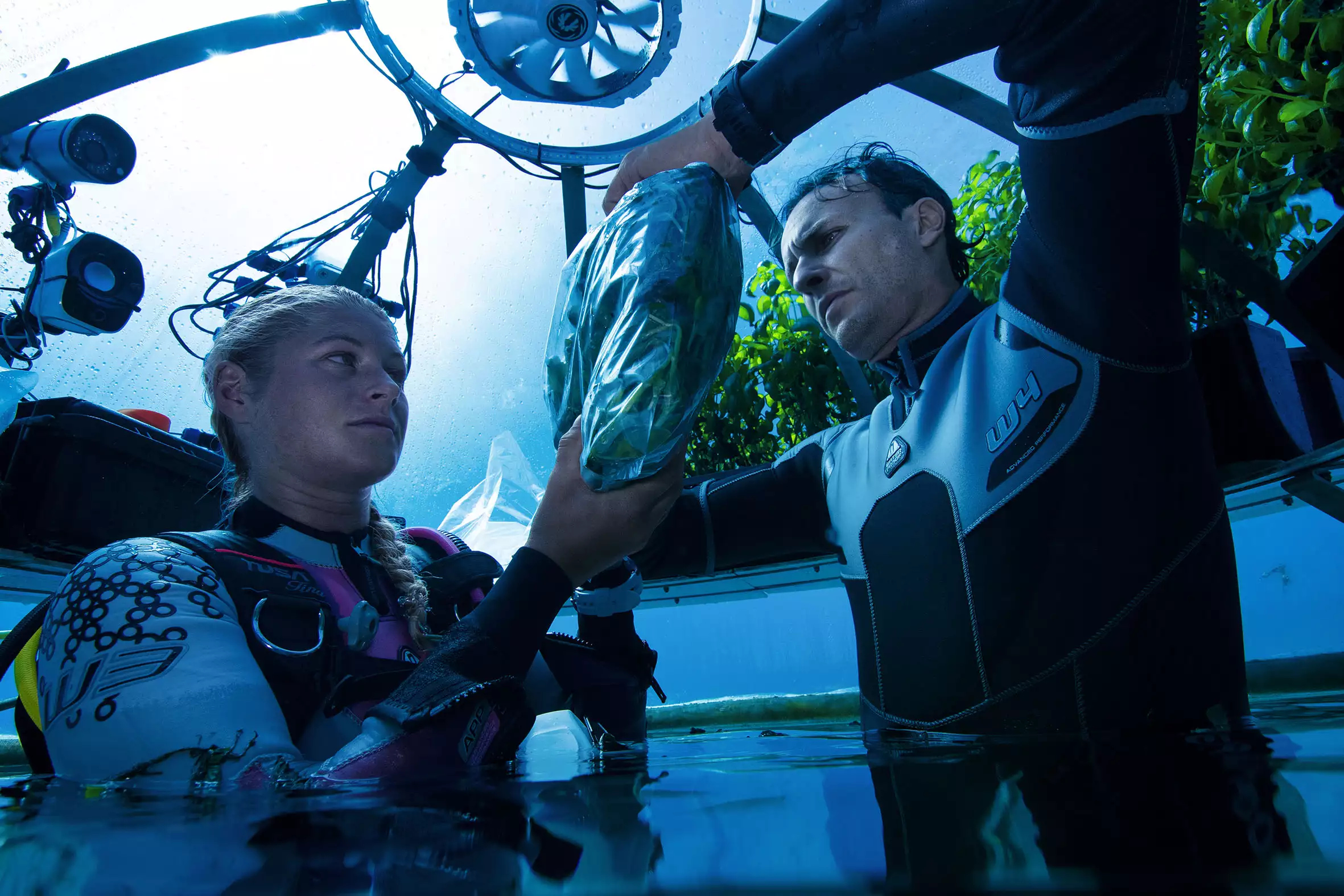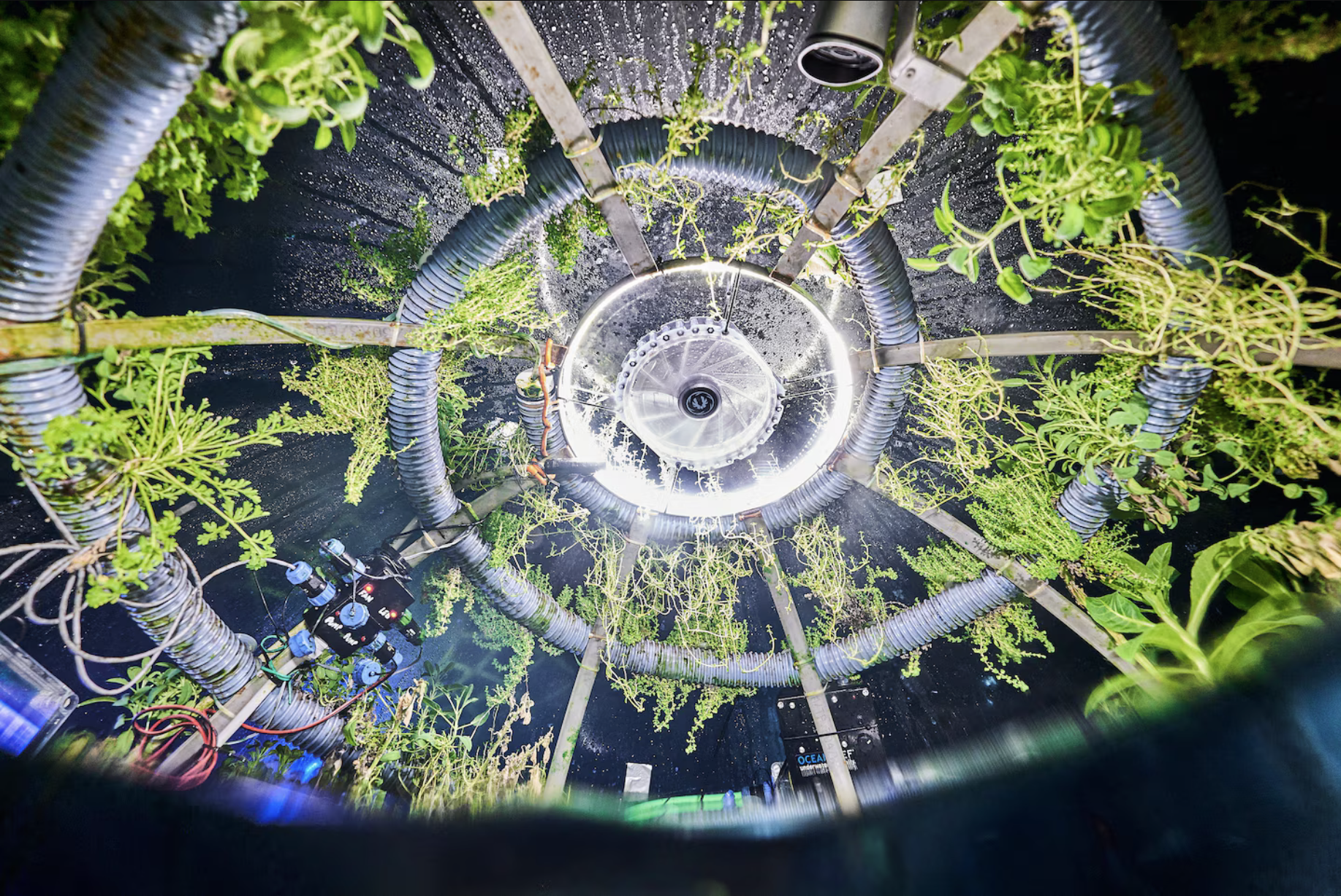Why Nemo’s Garden

Why Nemo’s Garden
Nemo’s Garden key benefits:
Reduction of land use
Underwater agriculture is a smart solution for a growing population and a planet with limited arable land. It doesn’t require deforestation, offsets habitat destruction, and one day may support sustainable farming without competing for space with traditional agriculture.
Stable temperatures
Nemo’s Garden underwater environment champions a more consistent climate, protecting plants from extreme weather and especially temperature fluctuations. This creates ideal growing conditions, potentially, year-round, while surface climates become increasingly unpredictable.
Nutrient-rich plants
Due to the unique underwater conditions, such as higher atmospheric pressure and a different light spectrum, plants grown in Nemo’s Garden have much higher concentrations of essential oils, over *31.52% higher antioxidant activity, and a *13.3% increase in polyphenols compared to plants grown in soil.
No freshwater waste
Nemo’s Garden utilizes natural evaporation and condensation processes within its biospheres to produce fresh water. This method mimics the natural evaporation of seas, allowing for the collection of fresh water without the need for external irrigation sources.
No pesticides
Nemo’s Garden’s plants grow in an obviously controlled and protected environment. The biospheres are a pest-free habitat, isolating the plants from external contaminants and antagonists that typically affect crops grown in traditional soil environments.
Marine Synergy
The biospheres can serve as safe havens for marine life, enhancing local biodiversity, and can be coupled with nearby fish farms to repurpose nitrogen-rich waste as natural fertilization—closing resource loops. This model is especially suited for regions with limited arable land but abundant ocean space, where local communities are already familiar with sea-based livelihoods. By aligning with existing cultural and environmental conditions, Nemo’s Garden offers a scalable, sustainable alternative to traditional agriculture.


Agricultural challenges
Modern agronomy, plant breeding, agrochemicals such as pesticides and fertilizers, have caused widespread ecological damages and negative human health effects.
In the developed world, industrial agriculture based on large-scale monoculture has become the dominant system of modern farming. However, there is growing support for sustainable agriculture.
Conventional agriculture is one of the most resource-intensive human activities, accounting for nearly 70% of global freshwater withdrawals. In many regions, irrigation relies heavily on non-renewable groundwater sources, drawing from aquifers at unsustainable rates. Meanwhile, increasing competition from urban development and industry is intensifying pressure on already-stressed water systems.
Agriculture is particularly vulnerable to the impacts of climate change. This is due not only to reduced water availability, but also to shifts in temperature, rainfall patterns, atmospheric CO₂ levels, and solar radiation. These interconnected variables directly affect crop yields, growing seasons, and soil health.
As global food demand continues to rise, the sector is being forced to produce more with less—particularly less water and arable land—placing urgency on alternative methods that are both resilient and resource-efficient.

A Scalable Opportunity in the 70% We’ve Ignored
Only a fraction of the Earth’s surface—less than 10%—is arable land, and much of it is already overexploited, degraded, or unavailable for further agricultural expansion. In stark contrast, over 70% of the planet is covered by water—an immense, largely untapped space.
With Nemo’s Garden, we propose a radical rethinking of agricultural boundaries:
by leveraging underwater environments for cultivation, even accessing a small percentage of this vast aquatic territory could dramatically relieve pressure on land resources.
This approach not only opens new frontiers for food production but aligns with our philosophy of working in harmony with nature, rather than exhausting it.